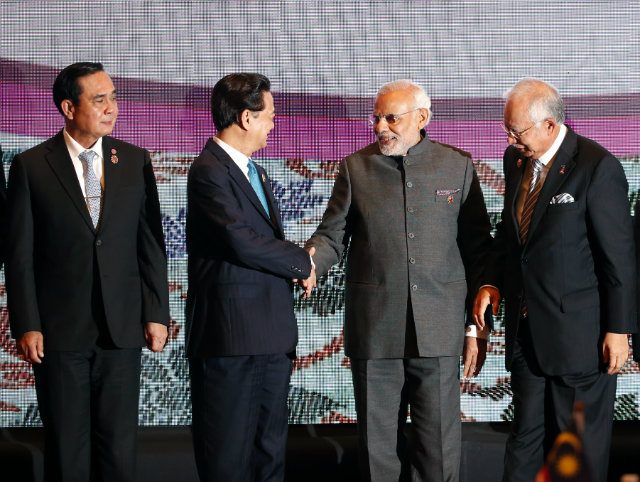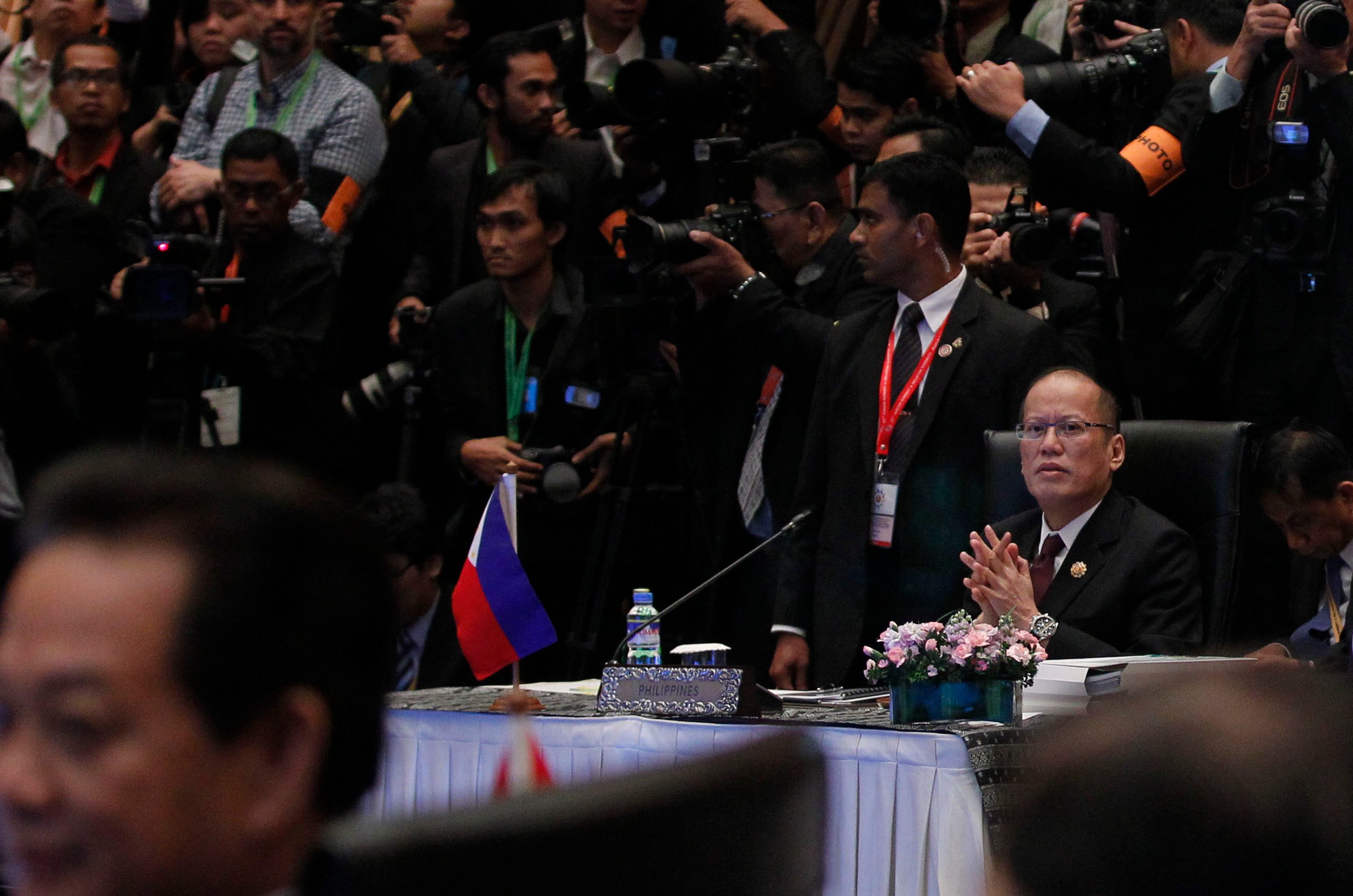SUMMARY
This is AI generated summarization, which may have errors. For context, always refer to the full article.

KUALA LUMPUR, Malaysia – What do China and India have in common? Like China, India also faced an arbitration case over a maritime dispute. But will Beijing follow New Delhi’s example, and comply with an unfavorable international ruling?
At a regional meeting with Indian Prime Minister Narendra Modi, Philippine President Benigno Aquino III drew a comparison between the Philippines’ historic arbitration case against China over the South China Sea with a similar case India lost.
Aquino addressed the Association of Southeast Asian Nations (ASEAN)-India Summit by again raising the maritime dispute with China, a topic he repeated all throughout the ASEAN meetings and related events on Saturday, November 21.
The President credited India for supporting the peaceful resolution of disputes under international law like the UN Convention on the Law of the Sea (UNCLOS).
“India has already shown its own determination to settle disputes by peaceful means. Its acceptance of the decision on their Bay of Bengal maritime boundary case with Bangladesh shows that arbitration is not a hostile act but is in fact a conciliatory move mutually beneficial not only to direct stakeholders, but also to the entire global community,” Aquino said.
Aquino referred to a 2014 decision of the UN Permanent Court of Arbitration in The Hague drawing a new maritime border in the Bay of Bengal. The ruling awarded more than 3/4 of a disputed area to Bangladesh. Both countries abided by the decision.
Bangladesh sought UN arbitration in 2009 after years of negotiations with India failed to reach a deal. Dhaka also won a 2002 case against Myanmar where the International Tribunal for the Law of the Sea resolved conflicting claims in the Bay of Bengal in Bangladesh’s favor.
How did Aquino come up with this reference? It so happens that the Philippines and Bangladesh have the same lawyer in their arbitration cases: American legal counsel Paul Reichler. (READ: PH lawyer vs China: ‘Giant slayer’ who defeated the US)
Reichler said that the ruling in the Bangladesh-India case was not just to the benefit of Dhaka.
“The arbitral tribunal brought great credit to itself and showed once again the wisdom of the drafters of UNCLOS in providing for compulsory dispute settlement,” Reichler said then.
Called one of the world’s most experienced practitioners in public international law, Reichler specialized for over 25 years in representing states in disputes with other states, and with foreign investors. He was also Bangladesh’s counsel in its case against Myanmar.
Reichler is known for representing smaller countries seeking to use international law to resolve disputes with bigger nations and superpowers like China.
Aquino’s remarks come days before The Hague-based arbitral tribunal hears the merits of its case against China. In October, the tribunal gave the Philippines a round one victory by ruling that it has the power to decide the case. A final ruling is expected by mid-2016.
ASEAN members Vietnam, Malaysia and Brunei also have claims to the strategic waterway. Using its controversial 9-dash line, China claims practically the entire sea.
The South China Sea holds shipping lanes where over $5 trillion of global commerce passes through each year. It is also home to about a tenth of the world’s annual fishing catch.

India backs Code of Conduct
Modi also brought up the South China Sea dispute in his remarks before the ASEAN leaders.
“India hopes that all parties to the disputes in the South China Sea will abide by the guidelines on the implementation of the Declaration on the Conduct of Parties in the South China Sea, and redouble efforts for early adoption of a Code of Conduct on the basis of consensus,” said the Indian leader.
Modi echoed the call of Aquino for a swift conclusion on negotiations for a legally binding agreement between China and ASEAN on the South China Sea.
In the ASEAN-China Summit, Aquino told Chinese Premier Li Keqiang that it has been 13 years since the non-binding Declaration on the Conduct of Parties was adopted. Aquino said China should exercise leadership by pursuing the code instead of delaying it.
US President Barack Obama also urged ASEAN and China to finalize the Code of Conduct. Obama and other US officials frequently comment on the dispute, condemning China’s reclamation and island-building.
India, too, has been increasingly more vocal about the maritime row.
The Indian government said that the South China issue also came up in the bilateral talks between Modi and Japanese Prime Minister Shinzo Abe on Saturday.
Indian ambassador to the Philippines, Shri Lalduhthlana Ralte, previously said that New Delhi supported international law and arbitration in resolving disputes.
India’s Ministry of External Affairs said the country stands for freedom of navigation, and wants to see all countries in the region adhere to international law. – Rappler.com
Add a comment
How does this make you feel?
There are no comments yet. Add your comment to start the conversation.